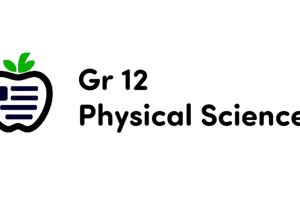Podcast
Questions and Answers
What is the effect of acceleration of the center of mass (COM) on ground reaction force (GRF)?
What is the effect of acceleration of the center of mass (COM) on ground reaction force (GRF)?
- It decreases GRF regardless of mass.
- It does not affect GRF.
- It affects GRF depending on both mass and the direction of acceleration. (correct)
- It increases GRF regardless of mass.
Which of the following statements best describes Newton's Third Law of Motion?
Which of the following statements best describes Newton's Third Law of Motion?
- An object at rest tends to stay at rest due to inertia.
- The acceleration of an object is directly proportional to the net force acting on it.
- For every action, there is an equal and opposite reaction. (correct)
- An object in motion stays in motion unless acted upon by an external force.
Which of the following is a component of ground reaction force (GRF)?
Which of the following is a component of ground reaction force (GRF)?
- Rotational force
- Tensile force
- Vertical force (correct)
- Frictional force
How is weight calculated on the Moon for an object with a mass of 100 kg?
How is weight calculated on the Moon for an object with a mass of 100 kg?
During running, what happens to the vertical ground reaction force (vGRF) and horizontal ground reaction force (hGRF) at mid-stance?
During running, what happens to the vertical ground reaction force (vGRF) and horizontal ground reaction force (hGRF) at mid-stance?
What does the moment of inertia represent in the context of Newton's Laws?
What does the moment of inertia represent in the context of Newton's Laws?
What is the key factor that affects the extent to which a segment contributes to ground reaction force during movement?
What is the key factor that affects the extent to which a segment contributes to ground reaction force during movement?
When running, which forces act during the initial contact phase?
When running, which forces act during the initial contact phase?
What does Newton's 1st Law of Motion primarily describe?
What does Newton's 1st Law of Motion primarily describe?
According to Newton's 2nd Law of Motion, what is the formula that relates force, mass, and acceleration?
According to Newton's 2nd Law of Motion, what is the formula that relates force, mass, and acceleration?
What is the SI unit of force as stated in Newton’s 2nd Law?
What is the SI unit of force as stated in Newton’s 2nd Law?
In the context of mass and weight, what does weight measure?
In the context of mass and weight, what does weight measure?
What happens to an object's motion if external forces are absent according to the first law of motion?
What happens to an object's motion if external forces are absent according to the first law of motion?
What is the primary distinction between mass and weight?
What is the primary distinction between mass and weight?
When calculating the weight of a 100 kg object on the moon, given that moon's gravity is 1/6th of Earth's, what would be its weight?
When calculating the weight of a 100 kg object on the moon, given that moon's gravity is 1/6th of Earth's, what would be its weight?
Which statement about Newton's laws is true?
Which statement about Newton's laws is true?
What is the center of mass (COM) of a body?
What is the center of mass (COM) of a body?
Which condition results in a turning moment (T) of zero?
Which condition results in a turning moment (T) of zero?
What primarily causes a turning moment in a somersault?
What primarily causes a turning moment in a somersault?
What does the moment arm represent in the context of angular motion?
What does the moment arm represent in the context of angular motion?
During flight, about which point does a rigid body typically rotate?
During flight, about which point does a rigid body typically rotate?
What is the primary factor influencing moment of inertia?
What is the primary factor influencing moment of inertia?
When two objects have the same mass, which factor determines which is easier to swing?
When two objects have the same mass, which factor determines which is easier to swing?
Which equation represents the relationship between angular momentum, moment of inertia, and angular velocity?
Which equation represents the relationship between angular momentum, moment of inertia, and angular velocity?
What happens to angular velocity if moment of inertia is increased, assuming no external moments act on the body?
What happens to angular velocity if moment of inertia is increased, assuming no external moments act on the body?
Which law states that if no external moments act on a body, the angular momentum remains constant?
Which law states that if no external moments act on a body, the angular momentum remains constant?
In the context of angular motion, what units are commonly used for moment?
In the context of angular motion, what units are commonly used for moment?
According to Newton's Third Law of Angular Motion, what do bodies exert on each other?
According to Newton's Third Law of Angular Motion, what do bodies exert on each other?
What is the result of applying a moment to an object in terms of its angular acceleration?
What is the result of applying a moment to an object in terms of its angular acceleration?
Flashcards are hidden until you start studying
Study Notes
Weight on Earth and Moon
- Weight is calculated using the formula Weight = mass (m) * acceleration due to gravity (g).
- Weight on Earth for a mass of 100 kg is 981 N (100 kg * 9.81 m/s²).
- Weight on the Moon for the same mass is 163.5 N (100 kg * (9.81 m/s² / 6)) due to reduced gravitational pull.
Newton’s Third Law of Motion
- Action-reaction principle: for every action, there is an equal and opposite reaction.
- Forces exerted by two objects on each other are equal in magnitude and opposite in direction.
Ground Reaction Force (GRF)
- GRF is the reaction force provided by a surface during movement, derived from Newton’s third law.
- Measured using a force platform; consists of vertical, forward-backward, and side-to-side components.
- The contribution of a body segment to GRF depends on mass and the acceleration of the center of mass (COM).
- Estimates: trunk and head contribute 50%, legs 17% each, arms 5% each to the GRF.
GRF During Running
- During running, initial contact generates upward vGRF and backward hGRF.
- Mid-stance and toe-off involve reduced vGRF and hGRF aiding in forward propulsion.
- GRF counters the downward motion of the runner throughout the gait cycle.
Newton’s Laws: Angular Motion
- Moment of Inertia (I) reflects a body's resistance to rotational motion and depends on mass distribution from the axis of rotation.
- Units for moment of inertia are kg*m².
- Moment of inertia is influenced more by how mass is distributed than by mass alone.
Angular Momentum
- Angular momentum (H) is calculated as the product of moment of inertia and angular velocity (w).
- Formulated as H = I * w.
Newton’s Laws: Angular
- Law I: Angular momentum remains constant unless acted upon by an external moment.
- Law II: Angular acceleration is proportional to the moment causing it (T = I * a).
- Law III: Bodies exert equal and opposite moments on one another, crucial for understanding biomechanics in physical activities.
Kinetics and Linear Motion
- Kinetics involves forces causing movement and forms the basis of understanding human motion.
- Newton’s linear laws include:
- Law I: Inertia - a body in motion stays in motion unless acted upon.
- Law II: Acceleration - directly proportional to force and inversely proportional to mass (F = ma).
Mass vs. Weight
- Mass reflects the quantity of matter, measured in kg; weight is the gravitational force acting on a mass (Weight = m * g).
- Gravity accelerates bodies towards the Earth at 9.81 m/s², with weight varying on different celestial bodies (e.g., Moon’s gravity is 1/6th of Earth’s).
- Example calculation of weight on Earth (981 N) vs. Moon (163.5 N) for a 100 kg block.
Whole Body Center of Mass (COM)
- Center of Mass indicates where mass is evenly distributed, influencing rotational dynamics.
- Path of a body in flight can be traced by tracking the COM.
- Rotational motion occurs about axes that pass through the COM.
Somersaulting and Angular Motion
- Applying a force that does not act through the COM creates a turning moment (T) essential for somersaulting.
- The moment arm (d) contributes to the turning moment; if d = 0, T = 0, indicating no torque produced.
Key Topics Summary
- Covered principles of kinetics, linear motion, ground reaction force, and angular laws.
- Highlighted significance of moment of inertia, angular momentum, and the center of mass in understanding biomechanics and physical movement.
Studying That Suits You
Use AI to generate personalized quizzes and flashcards to suit your learning preferences.



